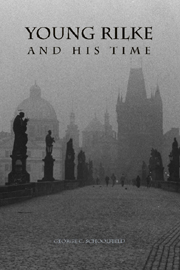6 - Rilke as Reviewer of German-Language Literature
from III - Rilke as Literary Critic
Published online by Cambridge University Press: 05 February 2013
Summary
viktor Karsky, in Rilke's story “Heiliger Frühling” (Holy Spring), published in the new Munich illustrated weekly, Jugend (1896), is a likable young man who does not put his friends off, finds brilliant names for everything he does or does not do, and expresses himself with a certain mature assurance. He is also a sort of critic — he likes to speak about literature, never in blame or dismissal, but rather praising the books that find his favor, his words sounding like sanctions from the highest instance. Customarily he does not finish reading the books that seem poor to him but keeps mum about them, even when others are full of their praise (SW 4:485–96). In Karsky, young Rilke predicts, to a good extent, what his own critical attitude would be; he is largely benevolent, or even extravagant. Writing his review of Gustav Frenssen's vastly popular Jörn Uhl during his brief stint as a reviewer for the Bremer Tageblatt und General-Anzeiger (27 July 1902), he announced that it was a good year for the person who, by the writing of criticism, means: “sich ehrlich und tief und rückhaltslos freuen an dem Außergewöhnlichen und Guten, an dem Schönen, wirklich Wertvollen” (SW 5:592–93; taking honest, deep, and unrestrained pleasure in what is exceptional and good, in what is rare, truly valuable).
- Type
- Chapter
- Information
- Young Rilke and his Time , pp. 151 - 198Publisher: Boydell & BrewerPrint publication year: 2008



